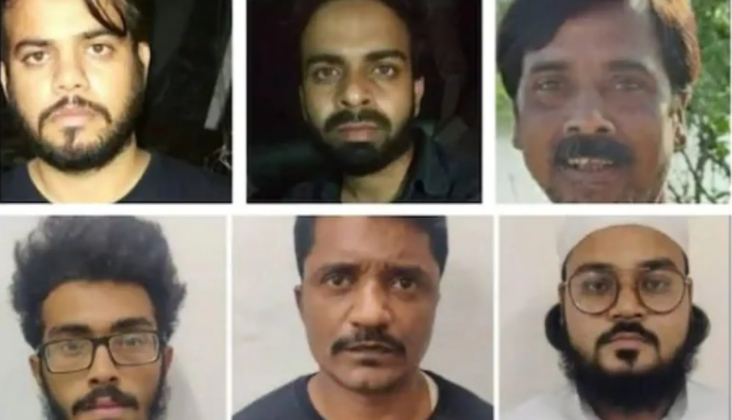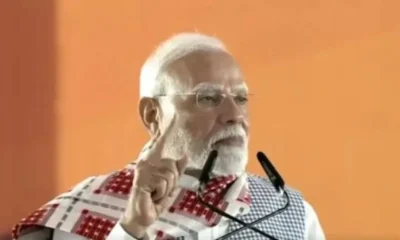India News
Delhi Police busts Pakistan ISI-trained terror module, Navaratri, Ram Leela gatherings were target
Those arrested have been identified as – Osama (22) from Delhi, Jaan Mohammad Shaikh (47) from Maharashtra, Zeeshan Qamar (28) from Allahabad, Moolchand (47) from Uttar Pradesh’s Rae Bareilly, Mohd Abu Bakar (23) from Behraich and Mohd Amir Javed (31) from Lucknow.

India News
Tamil Nadu potboiler: Now, Sasikala to launch new party ahead of election
Sasikala has announced the launch of a new political party ahead of the Tamil Nadu Assembly elections, positioning herself against AIADMK chief Edappadi K Palaniswami.
India News
As stealth reshapes air combat, India weighs induction of Sukhoi Su-57 jets
India is assessing the possible induction of up to 40 Sukhoi Su-57 fifth-generation fighter jets as stealth becomes central to future air combat strategy.
India News
RSS chief backs nationwide rollout of Uniform Civil Code, cites Uttarakhand model
RSS chief Mohan Bhagwat has supported nationwide implementation of the Uniform Civil Code, urging adoption of the Uttarakhand model.
-

 India News13 hours ago
India News13 hours agoDMK leader’s son arrested after car rams family in Krishnagiri, one dead
-

 India News12 hours ago
India News12 hours agoRSS chief backs nationwide rollout of Uniform Civil Code, cites Uttarakhand model
-

 India News3 hours ago
India News3 hours agoAs stealth reshapes air combat, India weighs induction of Sukhoi Su-57 jets
-

 Cricket news3 hours ago
Cricket news3 hours agoRinku Singh returns home from T20 World Cup camp due to family emergency
-

 India News2 hours ago
India News2 hours agoTamil Nadu potboiler: Now, Sasikala to launch new party ahead of election















